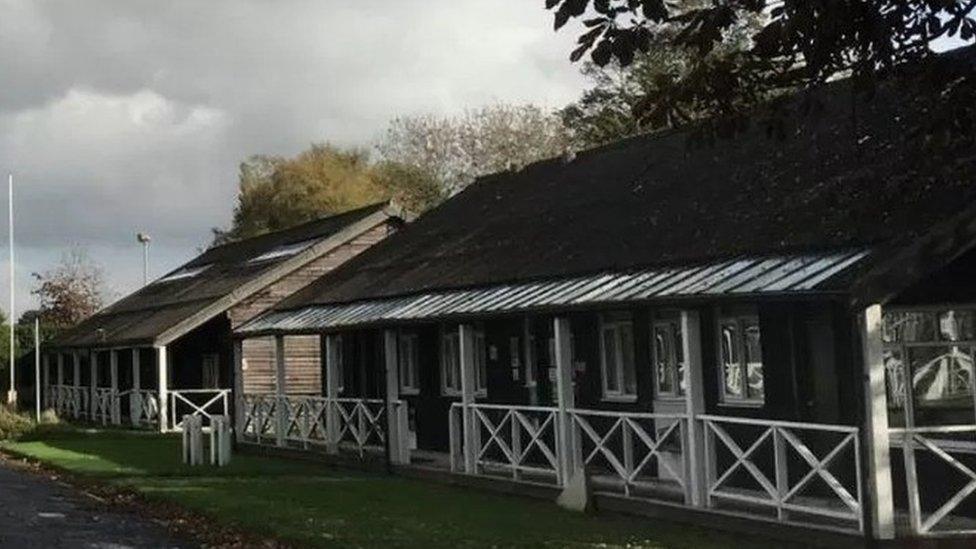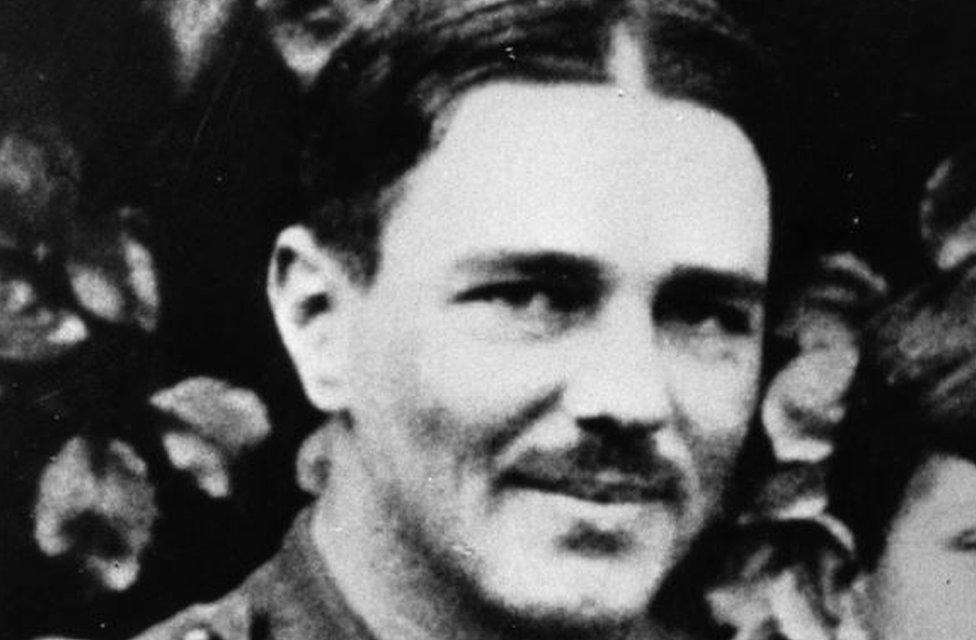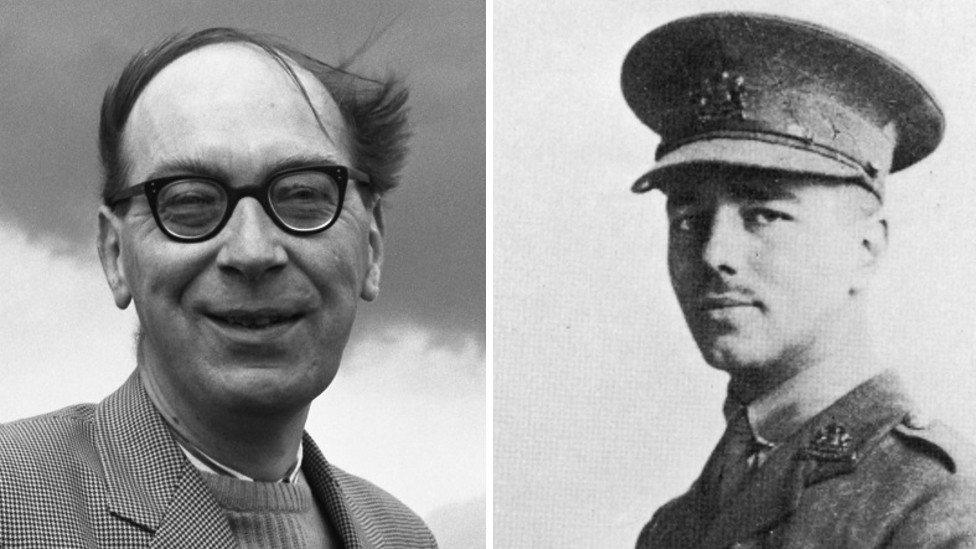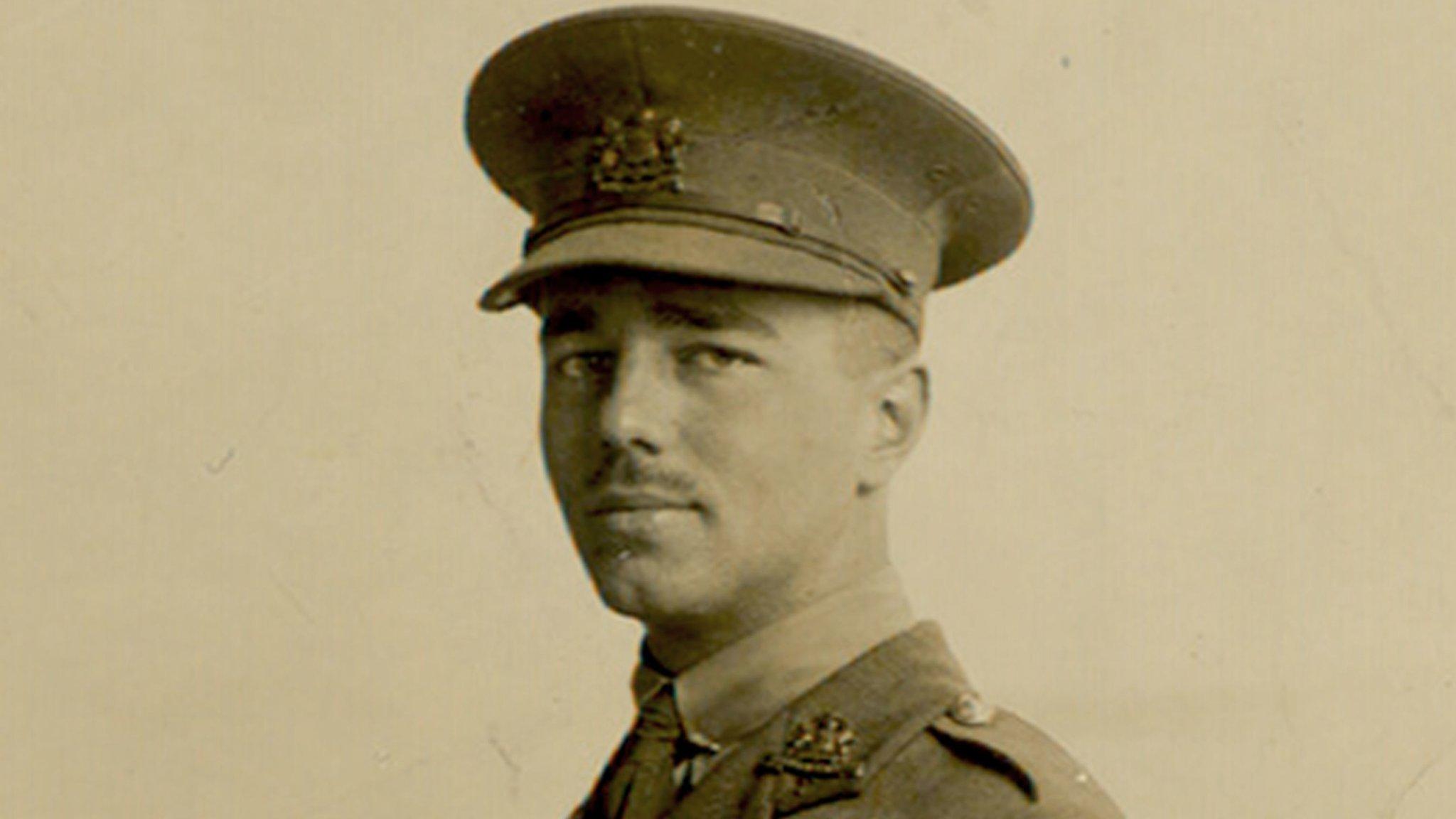Ripon campaigners vow to save Wilfred Owen Army base huts
- Published

War poet Wilfred Owen spent time in Ripon shortly before returning to the Western Front where he was killed
Campaigners are fighting to save Army huts on a Yorkshire base where World War One poet Wilfred Owen was sent to recover from shellshock.
Ripon Barracks is set to close by 2025, with 1,300 homes earmarked for the land.
Ripon Military Heritage Trust (RMHT) said seven huts are some of the last remaining of their type in the country.
The government's housing agency, Homes England, which is developing the site, said it would work with the group.

Poet Wilfred Owen was killed in the final week of World War One
The barracks were built as a convalescent camp for troops during the 1914-18 war.
It continued to be used by soldiers training for World War Two, as well as during the Cold War, and is still used today by the Royal Engineers.
According to the Wilfred Owen Association, the officer-turned-poet, recovering from shellshock, arrived at Ripon Army Camp on 12 March 1918.
During that spring, while lodging in a cottage in Borrage Lane, he wrote some of his most graphic and thought-provoking works, including The Send-Off, Mental Cases and possibly Strange Meeting.
He was killed on 4 November that year, as he led his men over the Sambre-Oise canal in northern France.
Jane Furse and Guy Wilson, from the trust, recently gave a presentation about the history of the huts to Ripon City Council.
Mr Wilson, a heritage expert who helped create the Royal Armouries museum in Leeds during the 1990s, said: "We want to preserve as much of it as we possibly can."
'Unique site'
He added there was an opportunity "to get Ripon on the map as a military heritage area."
Homes England said it would work with the trust on studies regarding the future of the buildings, but no guarantee has been made that the huts will be saved.
According to the Local Democracy Reporting Service, the huts could be levelled as early as next year.
Ms Furse claimed "everybody in Ripon" wanted to see a "military legacy" continue at the site.
The plans to save the huts were enthusiastically backed by councillors at the meeting.
Councillor Stuart Flatley said: "This heritage should never be buried. Never. This is a unique site and it needs to be promoted so. Military history is massive in this country. The rewards for Ripon would be enormous."
Councillor Pauline McHardy added: "It's our history. It's important that the children of Ripon don't forget what our lads from Ripon did."

Follow BBC Yorkshire on Facebook, external, Twitter, external and Instagram, external. Send your story ideas to yorkslincs.news@bbc.co.uk, external.
Related topics
- Published24 June 2022

- Published4 November 2018
